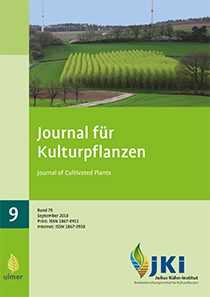Wood on farmland: Differences between growers and non-growers
DOI:
https://doi.org/10.5073/JfK.2018.09.02Keywords:
Agricultural wood, farmer, EFA, mean comparisonsAbstract
The current cultivation area of agricultural wood amounts to about 7000 ha in Germany. Large-scale production of wood chips is the main objective of cultivating agricultural wood. Wood chips are used for electricity generation and heating. Furthermore, farmers can meet part of the greening requirements of the EU’s current Common Agricultural Policy with agricultural wood. Overall, due to climate protection targets, cultivation of agricultural wood shows a large growth potential: by 2030, demand for wood as fuel is expected to double. Despite environmental advantages and social acceptance, cultivation of agricultural wood is of little importance in German agriculture. Against this background, the objective of this article is to find out whether growers of agricultural wood differ from non-growers in terms of their attitudes towards agricultural wood as an Ecological Focus Area (EFA), their risk attitude as well as operational aspects. For this purpose, a standardised online survey was conducted among 285 farmers in Germany. The results show that nearly 12% of the farmers surveyed grow agricultural wood. Growers of such agricultural wood have a more positive attitude towards agricultural wood as EFA than non-growers. Furthermore, growers of agricultural wood consider it as a useful measure of Greening but they are not willing to provide it as EFA. Growers of agricultural wood run rather small farms of up to 50 ha with little pasture land and leased land. It was not possible to identify significant differences between growers and non-growers regarding their risk attitudes. Improvement of knowledge, long-term organisation of agricultural and energy policy measures as well as a further increase in the weighting factor for agricultural wood as EFA, if necessary, can be recommended for a greater acceptance.
Downloads
Published
Issue
Section
License
The content of the journal is licensed under the Creative Commons Attribution 4.0 License. Any user is free to share and adapt (remix, transform, build upon) the content as long as the original publication is attributed (authors, title, year, journal, issue, pages).
The copyright of the published work remains with the authors. The authors grant the Journal of Cultivated Plants, the Julius Kühn-Institut and the OpenAgrar repository the non-exclusive right to distribute and exploit the work.







